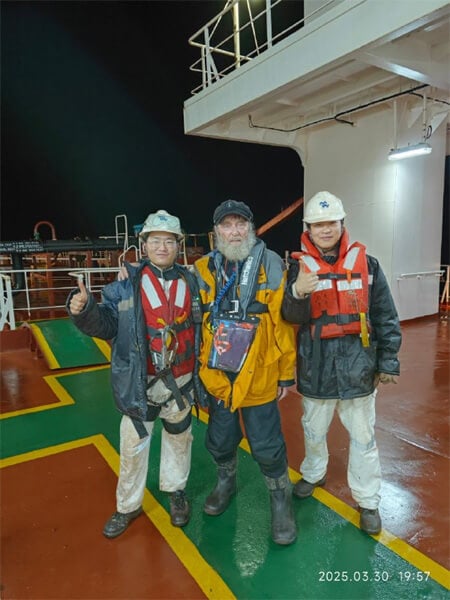Fans of complex management systems tend to live and breathe the analytics of daily operations. With the help of a strong safety management system (SMS) and properly placed sensors, any inquiring manager can learn what their vessel status is with respect to things like metered engine hours, equipment usage rates, conditions of lubricants and seals, hull conditions, onboard inventory, fire suppression systems and so on.
"You can't manage what you don't measure," the quote often attributed to management wizard Peter Drucker, seems to be the philosophical maxim for fleet management – or at least for safety fleet management.
It's not a one-model-fits-all situation. SMSs often focus on different aspects of marine operations. On good days, the analytics of operations and finance are the topics of discussion. On bad days, the topic becomes a spirited discussion of a serious incident that resulted in personal injury or death. It's a scenario made even worse when the victims are those who are allowed to be ignorant of the perils of the maritime world – paying passengers on cruise ships.
EARLY DETECTION
Consilium Safety Group's SMiG system is a next-generation SMS – an integrated alarm system that incorporates fire alarms, gas and vapor detection, sprinklers, lighting, temperature monitoring and general alarms. The recent acquisition of Daspos only enhanced these capabilities.
Martin Steen, Vice President, Americas with Consilium, states, "Two-thirds of all fires on vessels start in the engine room. In most cases, they're triggered by a failure in the fuel system followed by the contact of oil with a high-temperature surface in the engine room." In an age of conventional heavy fuels, alternative fuel technologies and electric power vehicles, specialized methods must be employed for each potential threat.
Steen says, "The detection technology developed by Daspos considerably increases early detection of vapors and oil mist from a wide range of fuels."
Early Detection is Consilium's newest software service. It's not just the software's name, it's also the philosophy behind it. Designed and marketed for the ro/ro industry, the goal is alerting the crew to possible threats based on temperature changes. With heat sensors strategically placed throughout the vessel, the system can recognize thermal differences based on set ambient temperatures in specific spaces.
This is important because the crew can be alerted and investigate potential hazards prior to a fire occurring. With lithium batteries and EV cargos, uncontrollable fires resulting from thermal runaway is a worst case scenario that must be avoided. Systems like Early Detection may well be the best preemptive defense.
Consilium states that, on average, the crew will receive warning from the system four minutes ahead of a fire igniting. In the case of an engine room fire, this valuable time will enable a fire crew to dress out while the engineering team will secure the fuel, ventilation and electric sources. The preemptive notification will have the fire team well-positioned to enter the space ready to face the worst while in all probability a majority of fires will be contained prior to ignition.
In the case of EV fires, the early alert will give fire teams time to react and eliminate the chance of thermal runaway.
FIRE SUITS
Lalizas Lifesaving has developed the next-generation fire suit. With EV thermal runaway in mind, Lalizas designed, manufactured and equipped vessels with the Antipiros Fireman's Suit.
This suit provides a level of thermal protection, penetration-from-water protection and vapor resistance that is fully compliant with upcoming European standards. More than that, it gives fire teams the protection they need if they are to have more than a fighting chance at containing an EV fire. Lalizas is seeing demand increase for these suits, and with good reason. In recent years, car carriers like the Fremantle Highway and Felicity Ace experienced total loss when the fires could not be contained.
In 2018, Lalizas acquired Houston-based Alexander Ryan, forming the subsidiary company, Lalizas/Alexander. The acquisition strengthened its customer service by providing a base of operations in the U.S. "As a trusted partner and consultant, we help maritime companies ensure compliance with regulations and minimize downtime," the company states.
The Houston base is certainly doing its part. In the tradition of Alexander Ryan Marine, life rafts are managed and serviced while new products are being introduced. One such product is the Lalizas Embarkation & Pilot Ladder, which has been approved by Bureau Veritas and manufactured on premises out of the Houston location.
LIFEBOATS & LIFESAVING EQUIPMENT
Fassmer Group, headquartered on the banks of the River Weser in Berne, Germany, is a leader in passenger safety. Since 1850, well before safety management systems were even a thing, Fassmer has been leading the way in critical segments like lifeboats, davits and rescue boats.
Integrating digital lifeboat condition-monitoring is where Fassmer is now driving the industry. Ship operators that choose to partner with Fassmer can, as part of their SMS, have lifeboats with digital displays showing in real time the condition of every meaningful aspect of the vessel from smoke detection to engine sensors as well as davit and vessel-release hooks.
A passenger on a voyage should never be expecting the worst, but if it does happen Viking Life-Saving Equipment provides ferry operators with turnkey safety equipment as well as a Shipowner Agreement whereby Viking assumes responsibility for the management of the equipment. From regulatory compliance to scheduled maintenance, the Shipowner Agreement can be customized to accommodate the specific needs of the vessel operator's fleet.
Viking began in 1960 with a purpose of producing life rafts for fishermen working in the North Sea. Today, their products and services include marine firefighting, marine evacuation systems, life vests, immersion suits as well as the capability to partner with shipowners in the management of their safety systems.
DATABASE ANALYSIS
Neurocraft Data is a Microsoft Founders Hub, AI-driven company that specializes in innovative solutions for process automation and operational efficiency.
To shipowners, this means it can tap into an expansive Microsoft database that transcends industries for incident reporting and risk analysis. With the help of Microsoft-based AI, shipowners can benefit by identifying trends and prioritizing risks pertinent to each individual operator.
"Neurocraft empowers the maritime industry with intelligent systems that prioritize safety, efficiency, and compliance, enabling operators to navigate the future with confidence and precision," the company states.
Realistic and immersive training is one of the best mechanisms to prepare for underway scenarios and keep the crew safe, compliant and efficient. Neurocraft will work with shipowners to develop customized virtual reality training and simulation programs. Along with the training capabilities, it can help optimize operational capacity by integrating real-time data from ship board monitoring into customizable safety dashboards.
DECK PLATE LEVEL
At the end of the day, artificial intelligence is really just a broker of information as are safety management systems. The real management of passenger safety lies at the deck plate level with a diligent crew that is trained on the proper use of the equipment most suitable for the situation.
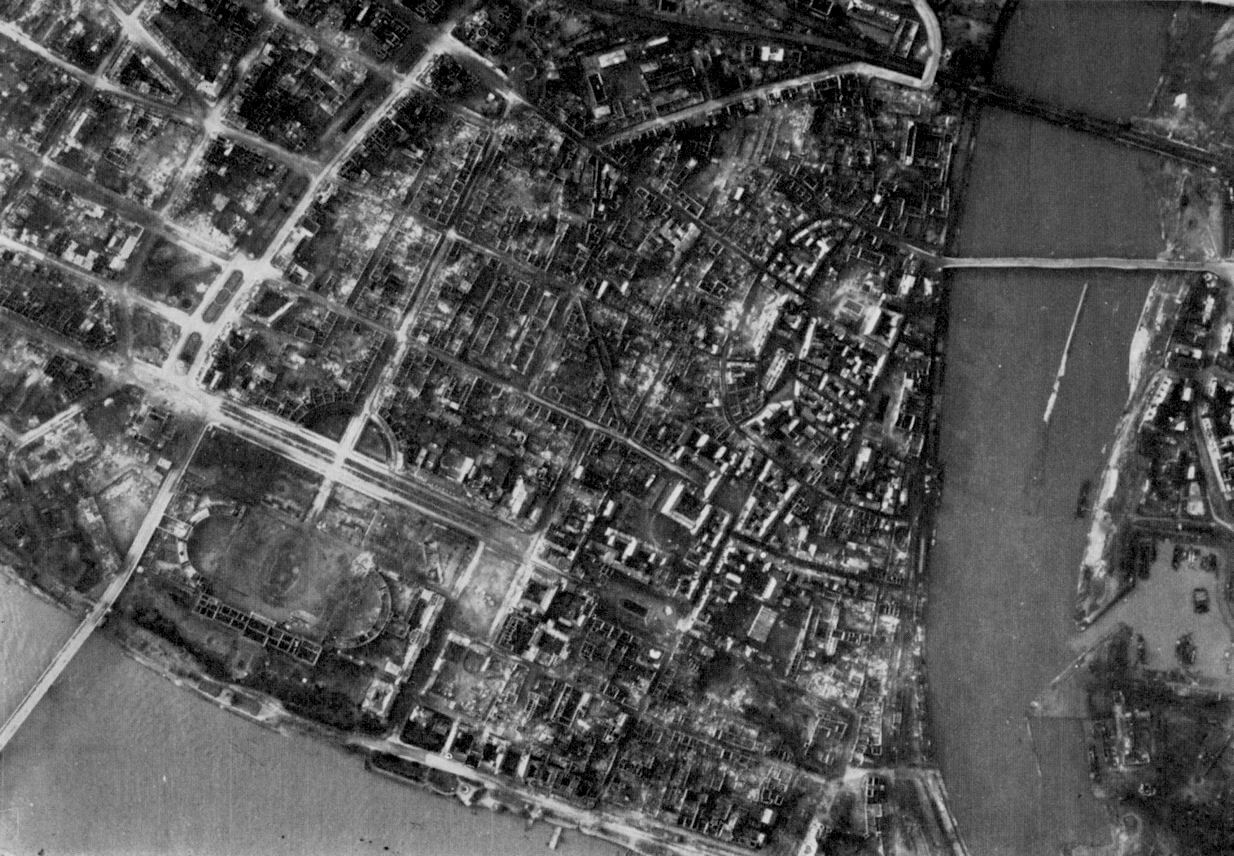 Bombing damage in downtown Koblenz, 1944. The Pffafendorf Bridge, where the bomb was dredged up, is visible at lower left (RAF)
Bombing damage in downtown Koblenz, 1944. The Pffafendorf Bridge, where the bomb was dredged up, is visible at lower left (RAF) USAF bombers over Koblenz, 1944 (USAF)
USAF bombers over Koblenz, 1944 (USAF)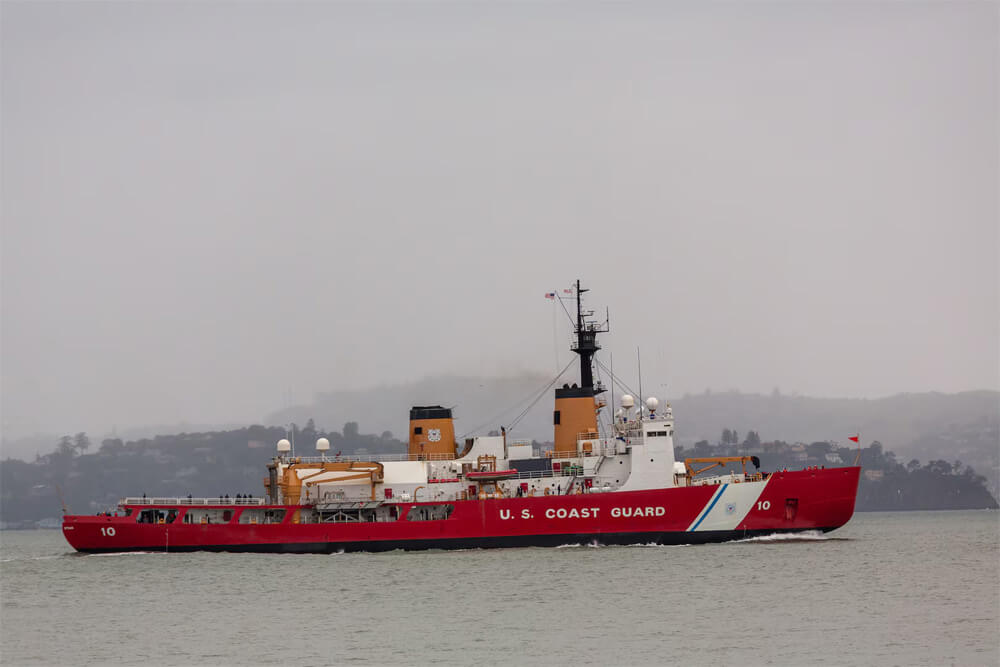
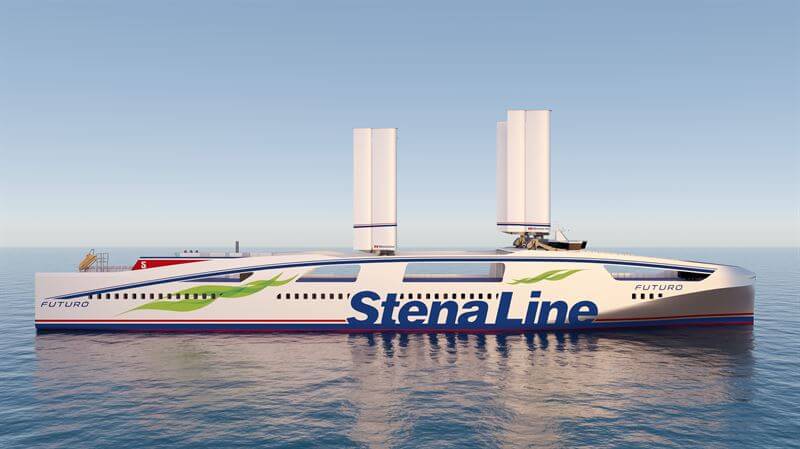
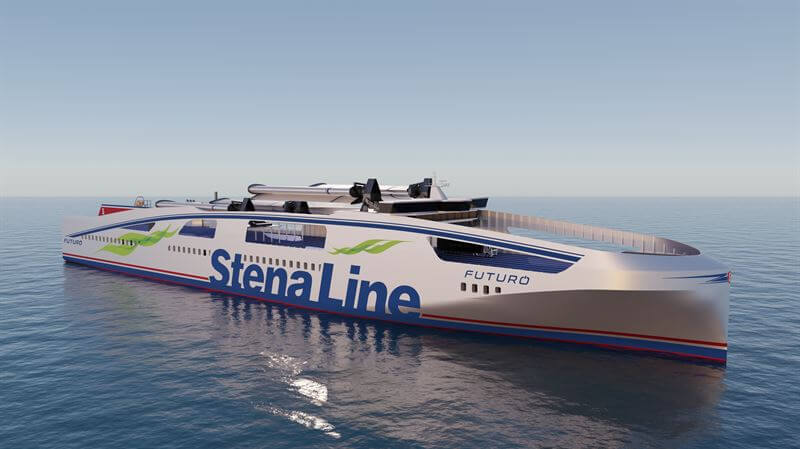
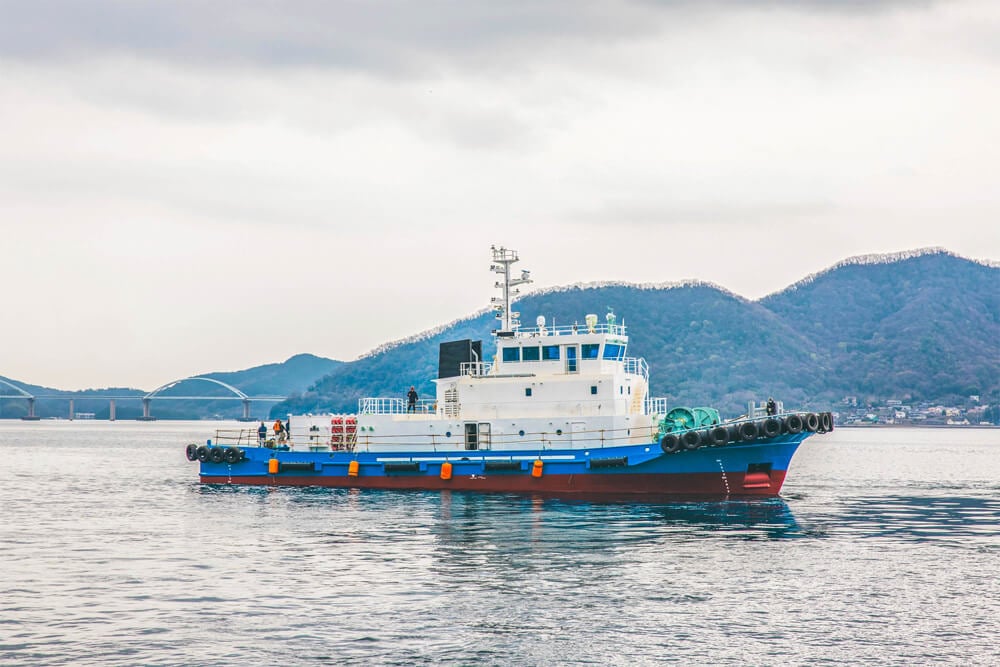
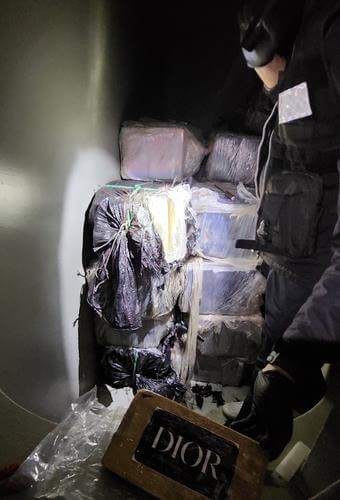
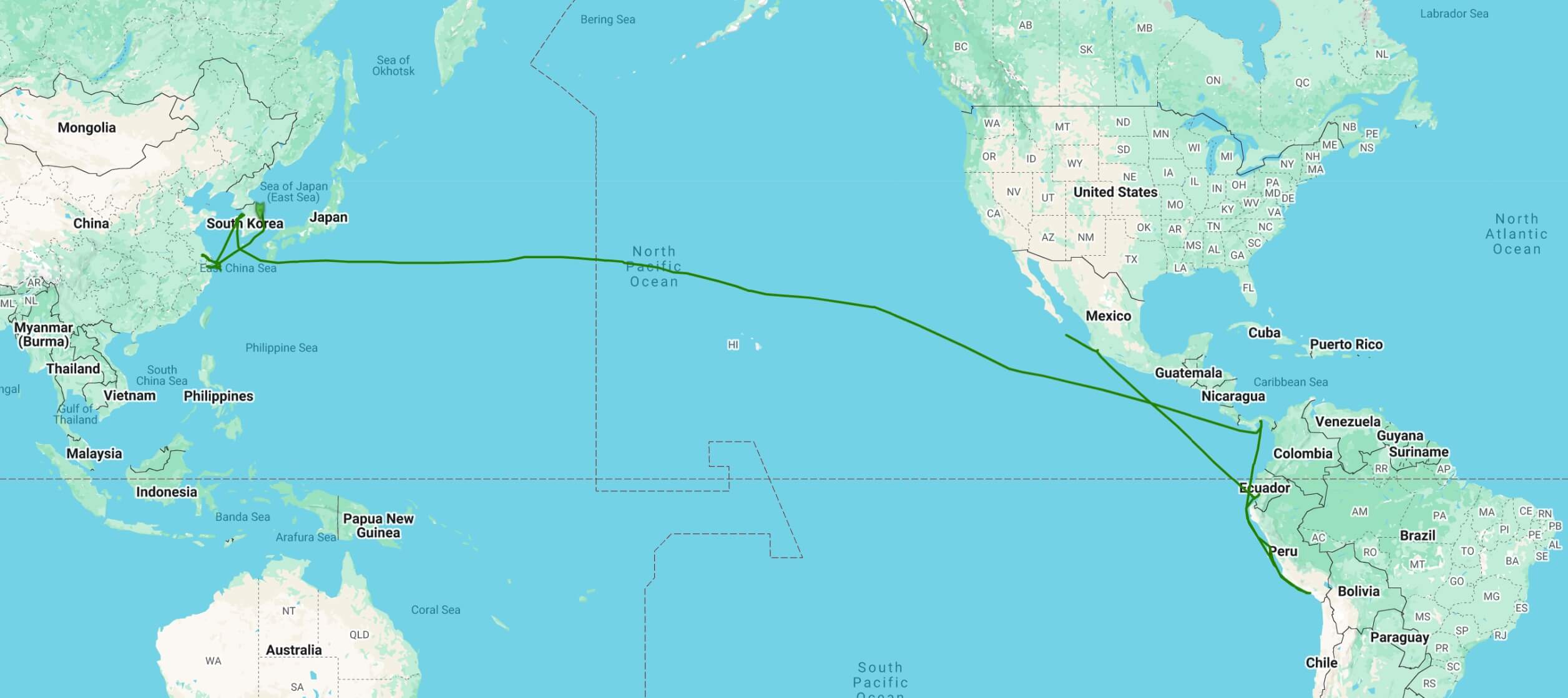 Lunita's AIS trackline during the first quarter of 2025 (
Lunita's AIS trackline during the first quarter of 2025 (